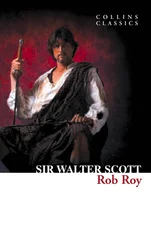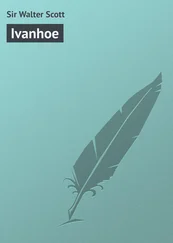Sir Scott - Ivanhoe
Здесь есть возможность читать онлайн «Sir Scott - Ivanhoe» — ознакомительный отрывок электронной книги совершенно бесплатно, а после прочтения отрывка купить полную версию. В некоторых случаях можно слушать аудио, скачать через торрент в формате fb2 и присутствует краткое содержание. Жанр: Старинная литература, на английском языке. Описание произведения, (предисловие) а так же отзывы посетителей доступны на портале библиотеки ЛибКат.
- Название:Ivanhoe
- Автор:
- Жанр:
- Год:неизвестен
- ISBN:нет данных
- Рейтинг книги:5 / 5. Голосов: 1
-
Избранное:Добавить в избранное
- Отзывы:
-
Ваша оценка:
- 100
- 1
- 2
- 3
- 4
- 5
Ivanhoe: краткое содержание, описание и аннотация
Предлагаем к чтению аннотацию, описание, краткое содержание или предисловие (зависит от того, что написал сам автор книги «Ivanhoe»). Если вы не нашли необходимую информацию о книге — напишите в комментариях, мы постараемся отыскать её.
Ivanhoe — читать онлайн ознакомительный отрывок
Ниже представлен текст книги, разбитый по страницам. Система сохранения места последней прочитанной страницы, позволяет с удобством читать онлайн бесплатно книгу «Ivanhoe», без необходимости каждый раз заново искать на чём Вы остановились. Поставьте закладку, и сможете в любой момент перейти на страницу, на которой закончили чтение.
Интервал:
Закладка:
Chant, ere I sleep, my measured hymn.
Who but would cast his pomp away,
To take my staff and amice grey,
And to the world’s tumultuous stage,
Prefer the peaceful HERMITAGE?
WARTON 1
Notwithstanding the prescription of the genial hermit, with which his guest willingly complied, he found it no easy matter to bring the harp to harmony.
“Methinks, holy father,” said he, “the instrument wants one string, and the rest have been somewhat misused.”
“Ay, mark’st thou that?” replied the hermit; “that shows thee a master of the craft. Wine and wassail,” he added, gravely casting up his eyes—“all the fault of wine and wassail! I told Allan-a-Dale, the northern minstrel, that he would damage the harp if he touched it after the seventh cup, but he would not be controlled. Friend, I drink to thy successful performance.”
So saying, he took off his cup with much gravity, at the same time shaking his head at the intemperance of the Scottish harper.
The knight, in the meantime, had brought the strings into some order, and, after a short prelude, asked his host whether he would choose a sirvente in the language of oc, or a lai in the language of oui, or a virelai, or a ballad in the vulgar English. 2“A ballad—a ballad,” said the hermit, “against all the ocs and ouis of France. Downright English am I, Sir Knight, and downright English was my patron St. Dunstan, and scorned oc and oui, as he would have scorned the parings of the devil’s hoof; downright English alone shall be sung in this cell.”
“I will assay, then,” said the knight, “a ballad composed by a Saxon gleeman, whom I knew in Holy Land.”
It speedily appeared that, if the knight was not a complete master of the minstrel art, his taste for it had at least been cultivated under the best instructors. Art had taught him to soften the faults of a voice which had little compass, and was naturally rough rather than mellow, and, in short, had done all that culture can do in supplying natural deficiencies. His performance, therefore, might have been termed very respectable by abler judges than the hermit, especially as the knight threw into the notes now a degree of spirit, and now of plaintive enthusiasm, which gave force and energy to the verses which he sung.
THE CRUSADER’S RETURN
High deeds achieved of knightly fame,
From Palestine the champion came;
The cross upon his shoulders borne
Battle and blast had dimm’d and torn.
Each dint upon his batter’d shield
Was token of a foughten field;
And thus, beneath his lady’s bower,
He sung, as fell the twilight hour: —
Joy to the fair! — thy knight behold,
Return’d from yonder land of gold.
No wealth he brings, nor wealth can need
Save his good arms and battle-steed,
His spurs, to dash against a foe,
His lance and sword to lay him low;
Such all the trophies of his toil,
Such—and the hope of Tekla’s cesmile!
Joy to the fair! whose constant knight,
Her favour fired to feats of might;
Unnoted shall she not remain,
Where meet the bright and noble train;
Minstrel shall sing and herald tell —
“Mark yonder maid of beauty well,
’Tis she for whose bright eyes was won
The listed field at Askalon!
‘“Note well her smile! it edged the blade
Which fifty wives to widows made,
When, vain his strength and Mahound’s spell,
Iconium’s turban’d soldan fell. 3
Seest thou her locks, whose sunny glow
Half shows, half shades, her neck of snow?
Twines not of them one golden thread,
But for its sake a Paynim bled. ”
Joy to the fair!—my name unknown,
Each deed and all its praise thine own;
Then, oh! unbar this churlish gate,
The night dew falls, the hour is late.
Inured to Syria’s glowing breath,
I feel the north breeze chill as death;
Let grateful love quell maiden shame,
And grant him bliss who brings thee fame.’
During this performance, the hermit demeaned himself much like a first-rate critic of the present day at a new opera. He reclined back upon his seat with his eyes half shut: now folding his hands and twisting his thumbs, he seemed absorbed in attention, and anon, balancing his expanded palms, he gently flourished them in time to the music. At one or two favourite cadences he threw in a little assistance of his own, where the knight’s voice seemed unable to carry the air so high as his worshipful taste approved. When the song was ended, the anchorite emphatically declared it a good one, and well sung.
“And yet,” said he, “I think my Saxon countrymen had herded long enough with the Normans to fall into the tone of their melancholy ditties. What took the honest knight from home? or what could he expect but to find his mistress agreeably engaged with a rival on his return, and his serenade, as they call it, as little regarded as the caterwauling of a cat in the gutter? Nevertheless, Sir Knight, I drink this cup to thee, to the success of all true lovers. I fear you are none,” he added, on observing that the knight, whose brain began to be heated with these repeated draughts, qualified his flagon from the water pitcher.
“Why,” said the knight, “did you not tell me that this water was from the well of your blessed patron, St. Dunstan?”
“Ay, truly,” said the hermit, “and many a hundred of pagans did he baptize there, but I never heard that he drank any of it. Everything should be put to its proper use in this world. St. Dunstan knew, as well as any one, the prerogatives of a jovial friar.”
And so saying, he reached the harp, and entertained his guest with the following characteristic song, to a sort of derry-down chorus, 4appropriate to an old English ditty:
THE BAREFOOTED FRIAR
I’ll give thee, good fellow, a twelvemonth or twain,
To search Europe through, from Byzantium to Spain;
But ne’er shall you find, should you search till you tire,
So happy a man as the Barefooted Friar.
Your knight for his lady pricks, forth in career,
And is brought home at evensong prick’d through with a spear;
I confess him in haste—for his lady desires
No comfort on earth save the Barefooted Friar’s.
Your monarch! Pshaw! many a prince has been known
To barter his robes for our cowl and our gown;
But which of us e’er felt the idle desire
To exchange for a crown the grey hood of a Friar!
The Friar has walk’d out, and where’er he has gone,
The land and its fatness is mark’d for his own;
He can roam where he lists, he can stop when he tires,
For every man’s house is the Barefooted Friar’s.
He’s expected at noon, and no wight till he comes
May profane the great chair, or the porridge of plums;
For the best of the cheer, and the seat by the fire,
Is the undenied right of the Barefooted Friar.
He’s expected at night, and the pasty’s made hot,
They broach the brown ale, and they fill the black pot,
And the goodwife would wish the goodman in the mire,
Читать дальшеИнтервал:
Закладка:
Похожие книги на «Ivanhoe»
Представляем Вашему вниманию похожие книги на «Ivanhoe» списком для выбора. Мы отобрали схожую по названию и смыслу литературу в надежде предоставить читателям больше вариантов отыскать новые, интересные, ещё непрочитанные произведения.
Обсуждение, отзывы о книге «Ivanhoe» и просто собственные мнения читателей. Оставьте ваши комментарии, напишите, что Вы думаете о произведении, его смысле или главных героях. Укажите что конкретно понравилось, а что нет, и почему Вы так считаете.










